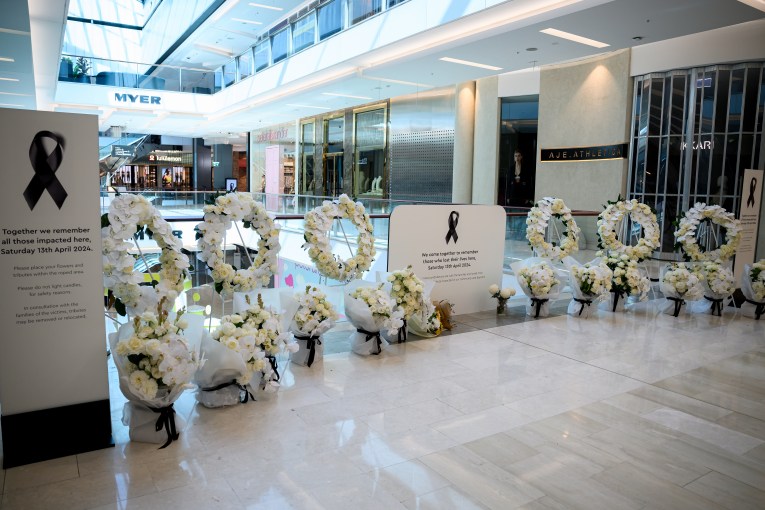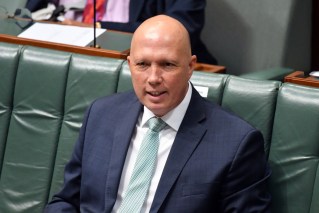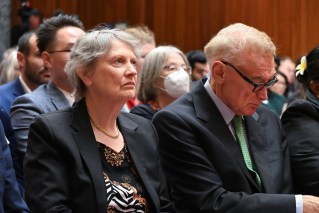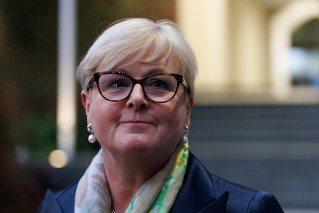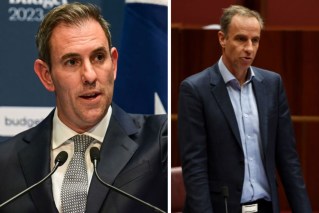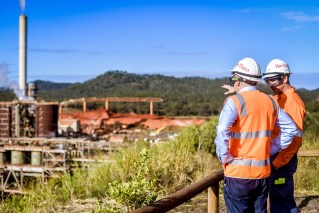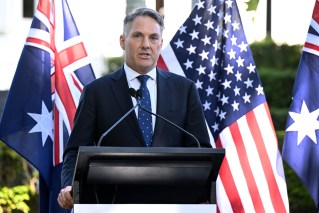Scott Morrison refuses to provide free rapid antigen tests for all Australians

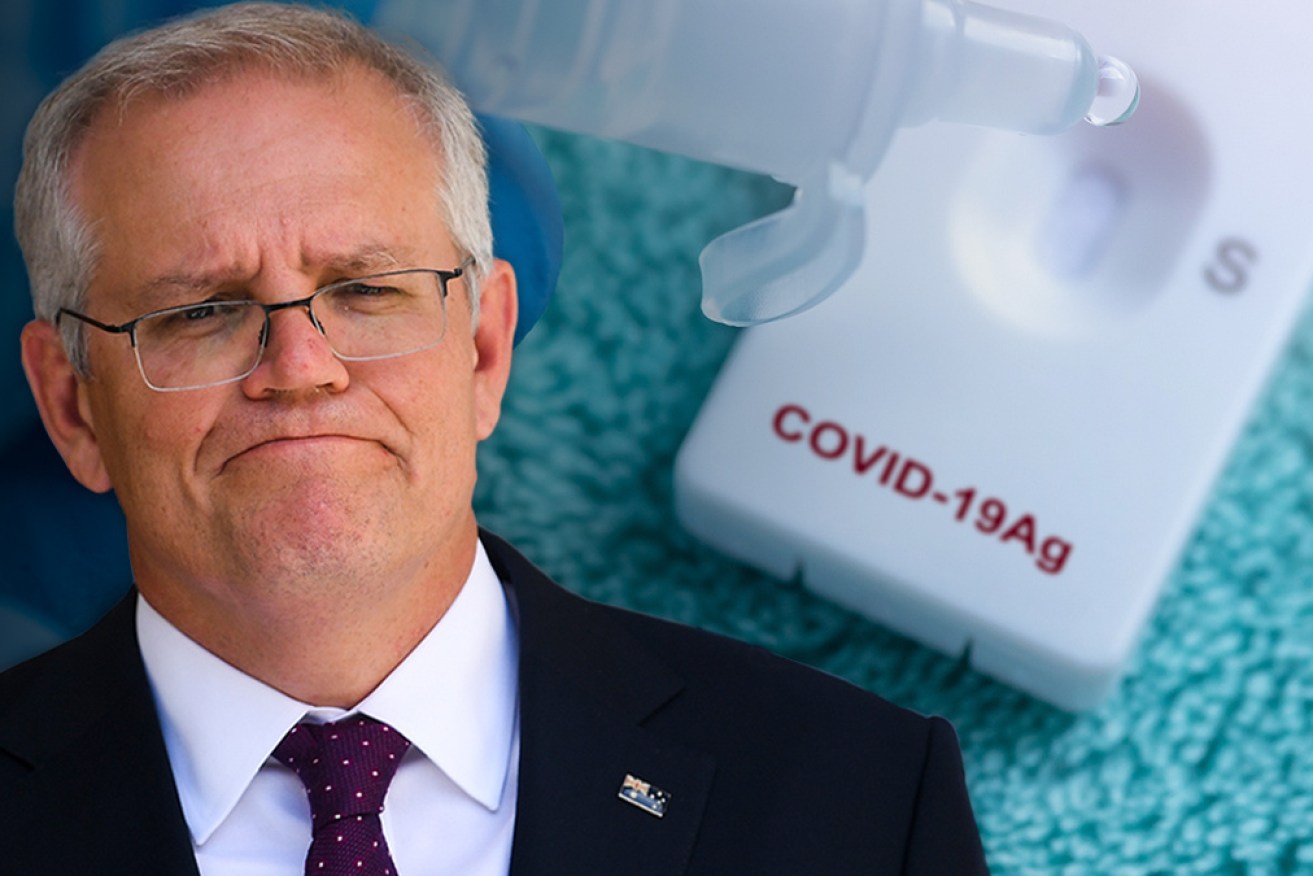
Scott Morrison's diagnosis has sent members of his cabinet and recent contacts in search of tests. Photo: TND
Welfare recipients and pensioners will soon be able to access 10 free rapid antigen tests every three months, but the Prime Minister stopped short of heeding experts’ calls to make the tests free for all Australians.
The free rapid antigen tests will be available at pharmacies, and an estimated six million Australians will need to show a seniors’ card, a concession card, a veterans’ card or something similar to claim them.
“Universal free access to tests was not agreed by any of the states and territories today, or the Commonwealth,” Prime Minister Scott Morrison told reporters late on Wednesday afternoon.
“What was agreed, though, was providing a model to provide concessional access for tests over a three-month period, and they will be made available through the pharmacy network.”
The scheme is due to come into play “within the next fortnight” – with the PM revealing further changes to testing requirements that are listed at the bottom of this article.
The announcement came just hours after Labor called for rapid antigen tests to be distributed free to all Australians, after days of equivocation on the matter.
“It’s clear that the costs of tests are dwarfed by the costs of inaction,” Labor leader Anthony Albanese said.
Mr Morrison had previously argued against “undercutting” retailers by handing out free tests – an argument which former prime minister Kevin Rudd called “hogwash”.
Tweet from @AlboMP
Rapid antigen tests are already distributed for free in the UK, Singapore, parts of Canada and, soon, the US.
It’s a policy that has long been called for by Australian experts across the board.
A team of health economists from Flinders University found that it would be cheaper for the government in the long run to hand out free rapid antigen tests in order to lower the spread of COVID-19, rather than trying to save money by distributing fewer tests.
“The work that we have done would suggest that it still might be cost effective to broaden the government-funded tests to essentially the whole population,” lead researcher Professor Jon Karnon told The New Daily.
He added that dispensing the tests at pharmacies and clinics, rather than via the postal system as has been done in the UK, would encourage even more people to swarm these facilities at a time when people should be staying home where possible.
Tweet from @henryladd4
And then there’s the benefit at an individual level.
Previously, UNSW epidemiologist Mary-Louise McLaws told TND that rapid antigen tests should be made free in December and March – long before they were approved for use in Australia.
Kristin O’Connell, a spokesperson for the Antipoverty Centre, also slammed the government’s latest move as being meagre and needlessly bureaucratic.
“Poor people are going to die at a higher rate, just as they have throughout the pandemic,” Ms O’Connell told TND.
The organisation advocates for all people living in poverty in Australia, not just those who receive government payments.
“Poverty does not mean the card you’re on – it means the conditions that you live under,” she added.
“Every barrier that [the government] puts in the way for people to be able to access essential and basic health care means that fewer people access their essential and basic health care.”
Health professionals want more
Several major health groups have publicly called on the government to make rapid antigen tests free for everyone.
“PCR testing is struggling to meet enormous demand as cases surge and rapid antigen tests can play an important role in protecting the health system and the community,” RACGP president Dr Karen Price said on Wednesday.
Meanwhile, the Australian Medical Association and the Public Health Association Australia put out a joint statement calling free rapid antigen tests “a matter of equity”.
“Everyone has the right to access RATs, not just those who can afford it, nor the insatiable desires of retailers who have the unusually close ear of government,” PHAA CEO Terry Slevin said.
“We didn’t let the market decide the price for COVID-19 vaccines, and we must not let it determine RAT prices.”
But with stock selling out before it even hits chemist shelves, the Pharmacy Guild of Australia has called on the government to limit how many rapid antigen tests each customer can buy.
This is to avoid stockpiling during a time of need.
Professor Karnon said that while per-person limits are an important way to prevent stockpiling, the government’s limit of 10 tests over three months was “a little low”.
While stocks last
Rapid antigen tests have been in short supply since Omicron cases began to surge in December.
This has led to instances of price gouging.
In December, a five-pack of tests typically cost $50, whereas some retailers like Dick Smith and Kogan have recently taken to selling individual tests for this much.
In response to reports of price gouging, Mr Morrison announced that retailers caught instituting a 120 per cent or higher markup on rapid antigen tests could be slapped with a $66,000 fine and up to five years in jail.
“These are the same price gouging regulations that were put in place earlier in the pandemic,” Mr Morrison said, referring to essentials like toilet paper.
But when asked how many rapid antigen tests he’d personally bought, Mr Morrison replied: “I’ll have to check with Jen, because she’s the one who goes and gets them.”
Tweet from @AirlieWalsh
The majority of rapid antigen tests in Australia are imported from China.
The only locally made option is the InnoScreen nasal swab test, which is manufactured in Sydney.
Queensland medical equipment company Ellume has exported millions of Australian-made rapid antigen tests to the US, however the company is still collecting data to submit to the TGA for domestic approval.
For now, the majority of Australians remain at the mercy of wholesalers and retailers, some of whom have been accused of “drip-feeding” products into the market to create false scarcity.
Other changes made at national cabinet
- People who test positive to a rapid antigen test no longer need to confirm this diagnosis with a PCR test. Mr Morrison said people should inform their GPs about their diagnosis so they receive appropriate care. But he failed to outline a system for recording these cases, saying “I see no issue with us having a system up in place ready for that to be there when it is in full swing”
- The seven-day rolling test requirement for truck drivers has been removed
- The requirement for pre-arrival COVID-19 tests at private hospitals has been removed, bringing this in line with rules at public hospitals
- Overseas travellers will no longer need to take a PCR test after arriving in Australia. They will only need to take a rapid antigen test and, if their result is negative, they will need to take no more tests. Mr Morrison said the only exception to this rule will be arrivals into Queensland, which will keep the PCR test requirement until it achieves a 90 per cent double-dose vaccination rate
- Mr Morrison said “all states are moving away from requiring a rapid antigen test for interstate travel” except Western Australia. He said Victoria and New South Wales would bring in the change immediately, while Queensland would only enforce it after achieving a 90 per cent double-dose vaccination rate, and Tasmania would make an announcement on the timing of the change “in the course of the next week or so”
- The Commonwealth will provide 10 million rapid antigen tests to the states and territories, which will predominantly be used as point-of-care tests
- Mr Morrison said the point-of-care RATs would be conducted by health professionals at testing clinics as they move away from PCR tests. The tests would be reserved for people with symptoms and close contacts of confirmed cases. “You’ll get your results there and then, within 15 minutes,” Mr Morrison said. “You won’t have to wait for the test results to come back from the lab.”
